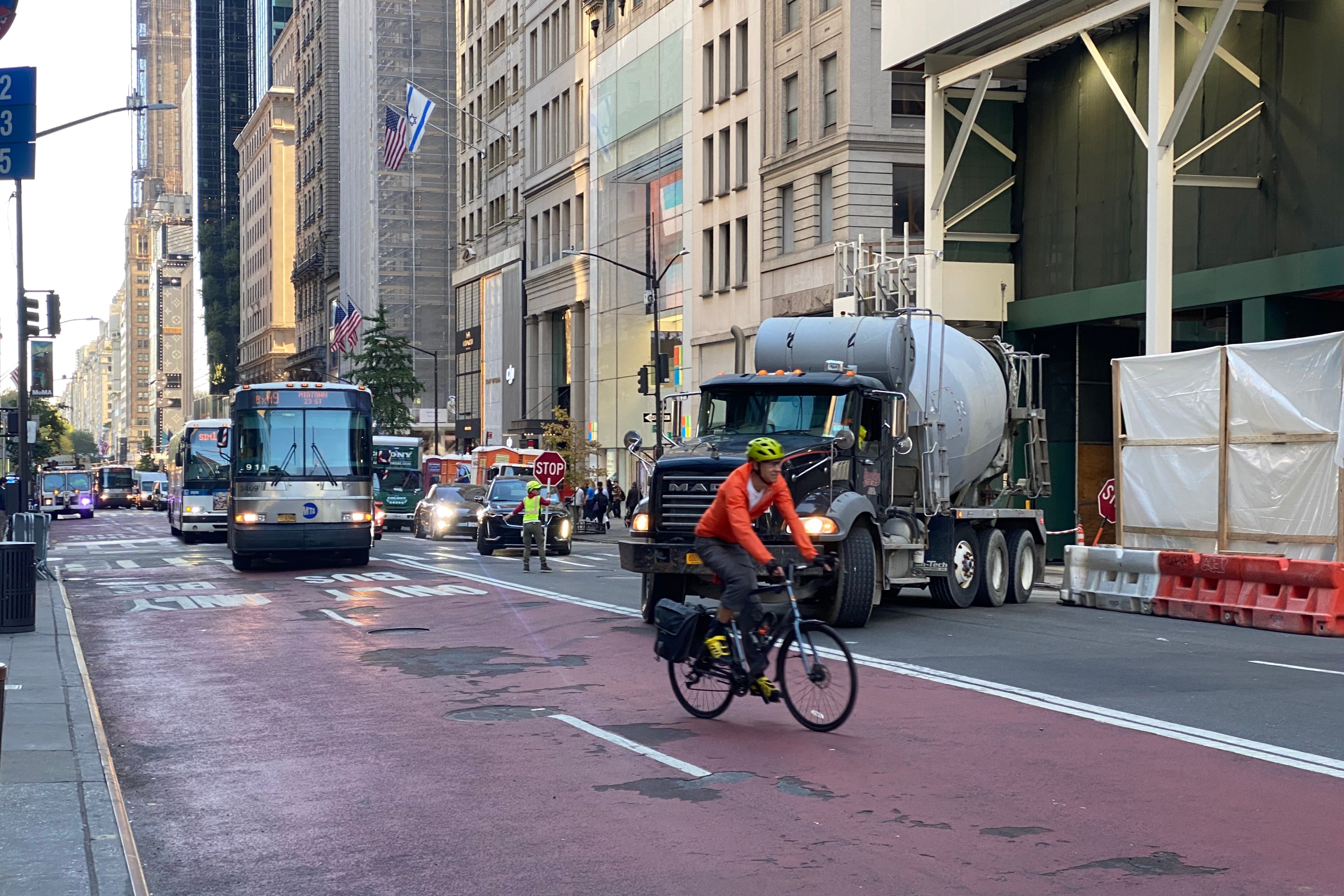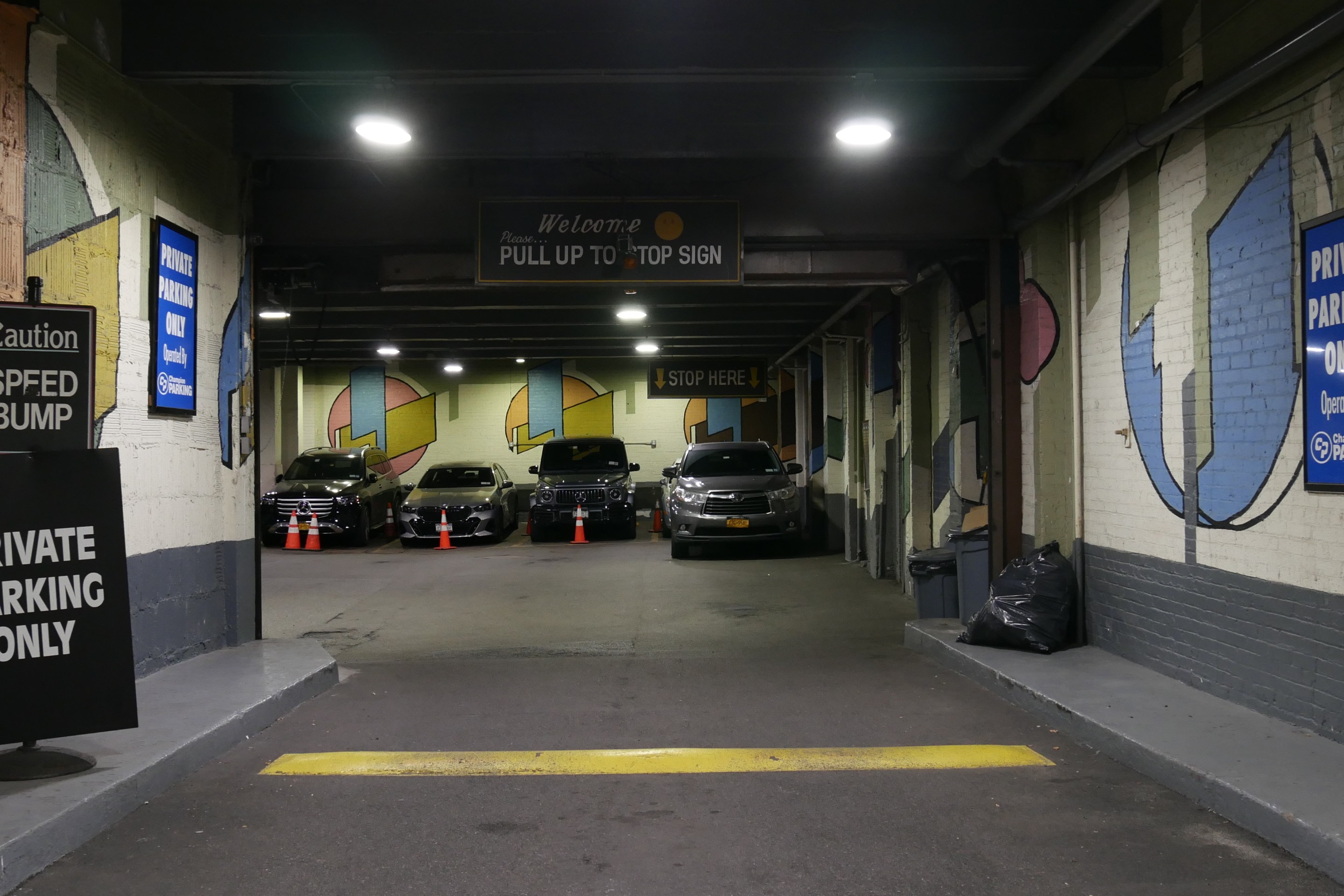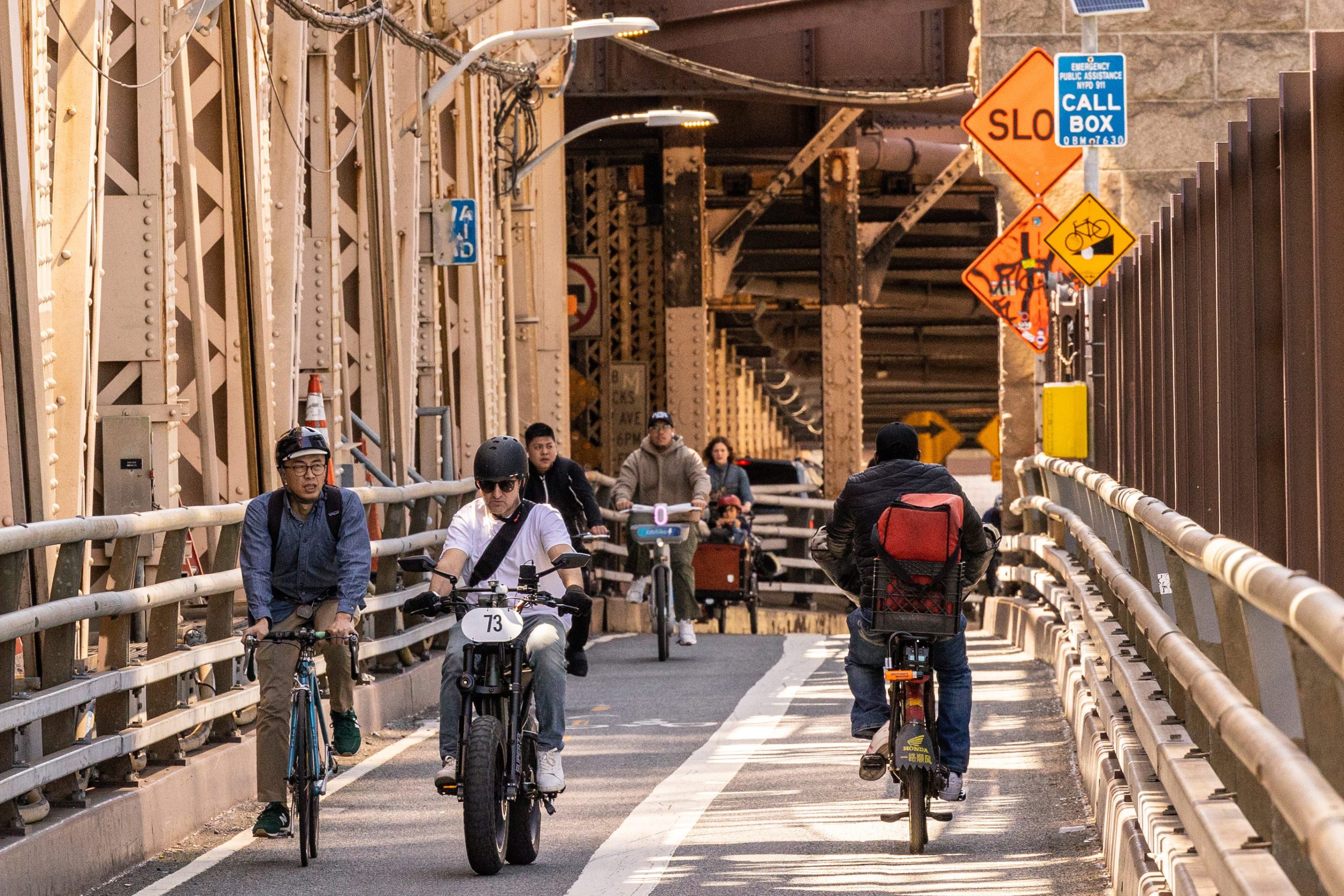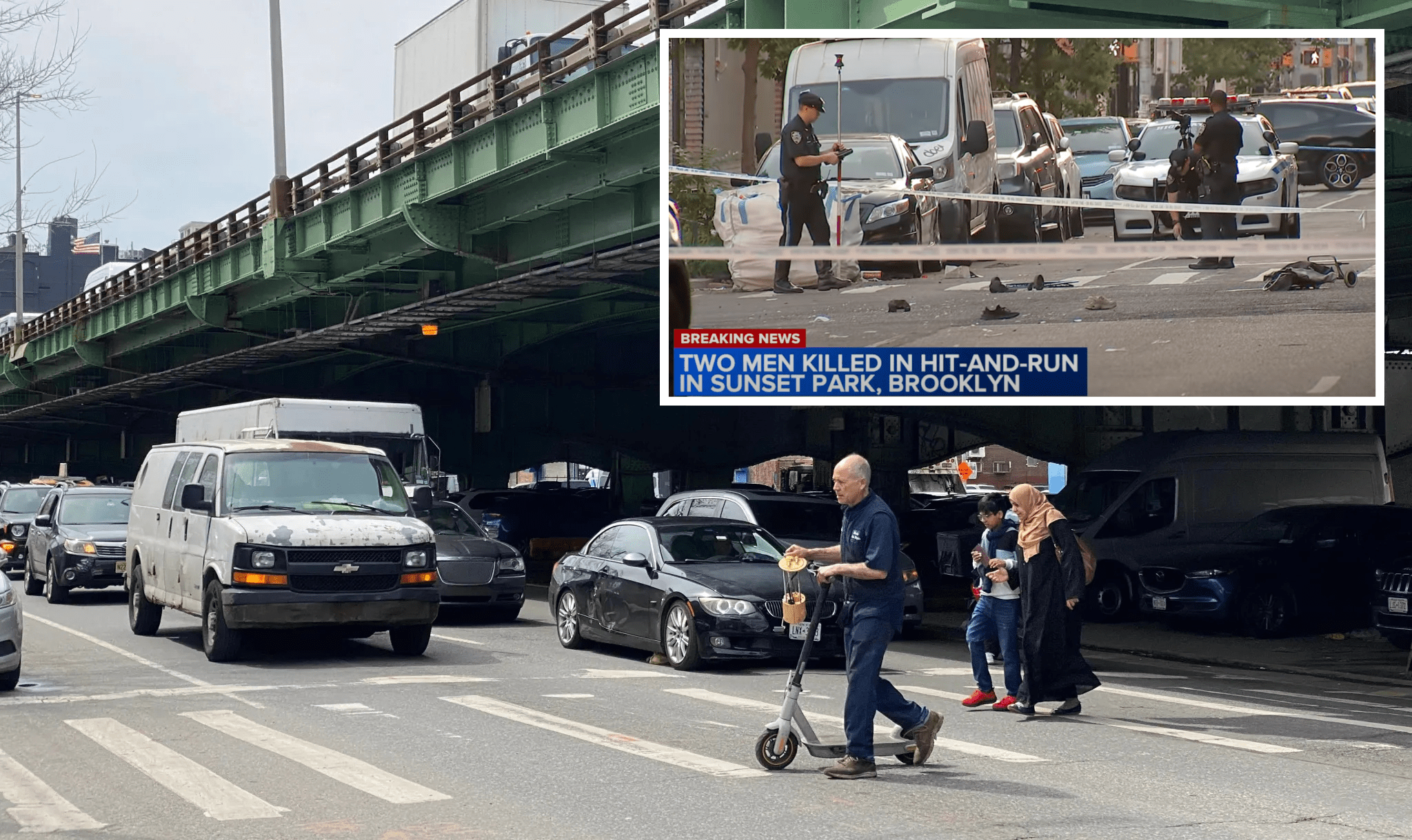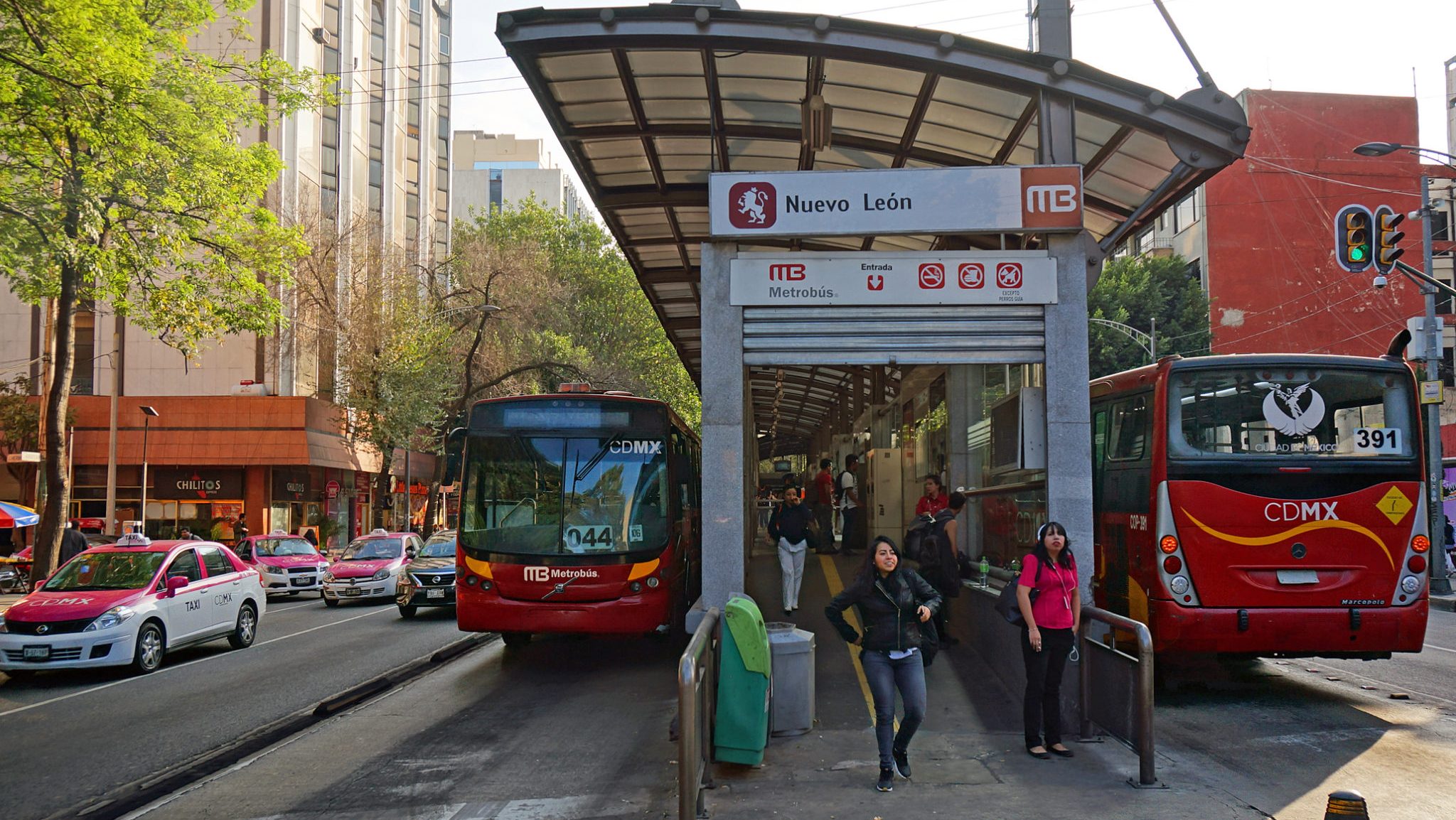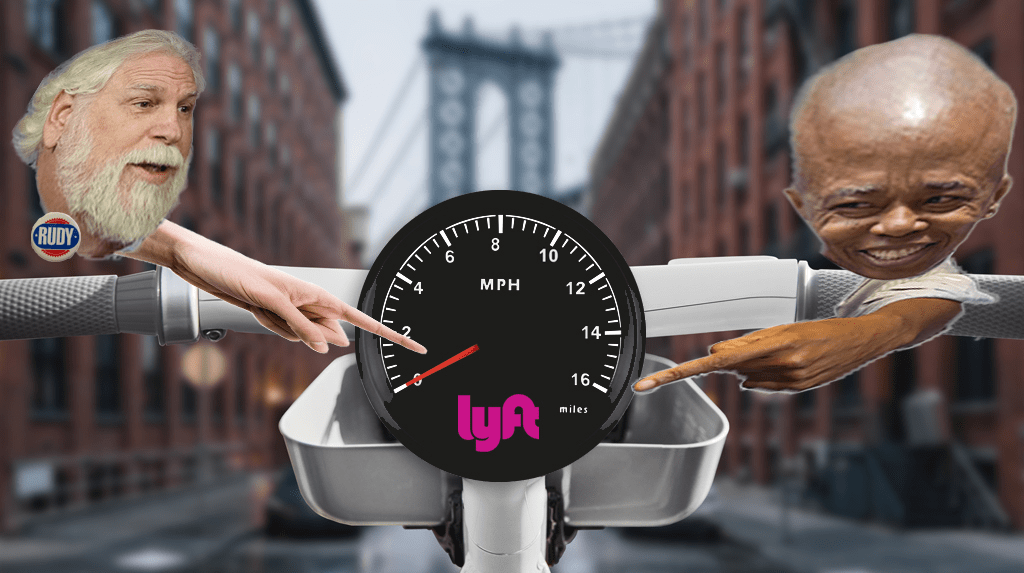
Panelists on suburban sprawl: Eugenie Birch, James Russell, Robert Bruegmann and Alexander Garvin.
Folks who went to yesterday's Municipal Art Society forum "Can Sprawl Be Beneficial" heard what must be the best possible defense for suburban sprawl from one of its recently arrived boosters: "I'm not saying that sprawl is good," said author Robert Bruegmann. "All I'm saying is that it is not necessarily bad."
In other, tepid, words: Sprawl is not good. In fact, it might be bad. But it's not necessarily bad.
Rather than struggle to fill a room in an office park at the intersection of I-287 & I-78 out in Jersey, Bruegmann, who is promoting his new book providing intellectual cover for sprawl, bravely ventured into Midtown Manhattan to tell an evidently skeptical crowd that skyscrapers use a lot of energy, cities have more pavement than suburbs, and sprawl, if you define it the right way, isn't the huge problem that people make it out to be.
Bruegmann says that the desire to flee the city is the natural order of human existence from Herculaneum to today, that it is the natural choice people make when it is given to them. And that we ought to embrace it for that. Casting himself as one who is overturning conventional wisdom, Bruegmann waters down the definition of sprawl as it is commonly understood, rendering the rest of his pro-sprawl assertions more or less meaningless. In doing so, he confuses growth of the city with sprawl. Here is the image of Leicester Square in 1750 that he used in his slideshow to define early sprawl.

London's Leicester Square in 1750: If this is sprawl, let's have some more.
Harlem was once considered a suburb too, but it was never considered sprawl. Both Leicester Square and Levittown may have been created with the impulse to escape the city center, but they are still fundamentally different in form. Call me a stodgy supporter of the conventional wisdom, but Leicester Square in 1750 looks like a fundamentally different built form than modern American strip malls and subdivisions. The neighborhood in the photo is walkable, it is dense, it consumes little land, it provides a public open space rather than many private open spaces, and it is located close enough to the city center to be a short commute by horse and carriage. This Bruegmann calls "sprawl," in his effort to redefine the term so that it's not such a dirty word anymore. But this new definition allows him to make the claim that transportation policy has nothing to do with the creation of "sprawl." It wasn't the Interstates that created sprawl, then. It was an innate human urge. How could that be bad?
A second critical fallacy to Bruegmann's thesis arose during the question-and-answer session, when he admitted that sprawl is associated with excess use of fossil fuel energy, at present. But he tried to sidestep that inconvenient fact by arguing that it isn't sprawl per se that is the cause of greenhouse gas emissions, it is the oil-powered internal combustion engine. "We shouldn't be using the 19th century technology that we are for cars," he said. "It's outrageous that we do."
On a side note: Guns don't kill people, you know. Bullets do. It is outrageous that gun control advocates still exist when we as a society really ought to be outlawing bullets.
So given that sprawl encompasses everything from four-story rowhouses within a 20-mph carriage ride from town to dense Corbusian towers outside Paris, and that you can't blame the single-family detached houses themselves for being accessible only by the car, what does Bruegmann want us to know about sprawl? Three things.
- Before he came along it has always been ill defined. (His less offensive definition is better.)
- The criticism of sprawl detracts attention from real problems. (How can we be worried about culs-de-sac when favela dwellers lack clean air and water?)
- Scholars, writers and commentators of all stripes (everyone from David Brooks to Herbert Gans presumably notwithstanding) haven't given the suburban landscape its due as an object worthy of study. It is a landscape, he says that is "as as varied, as rich and as dynamic as any central city."
I have taken issue with his first point already, so I will jump to his second. It is admirable that he shows such concern for third world environmental degradation, but he fails to note the historical context in which that came about. It was precisely at the moment that U.S. sprawl mushroomed that once mighty American urban manufacturing began moving overseas to cheaper third world labor. The hollowing out of American manufacturing and the postwar building of sprawl were part and parcel of the same exodus from cities: As manufacturing jobs dried up, people moved away from cities, where they created things, and into sprawl, where they consume things made in cities in the third world. Bruegmann fails to make the connection that by reducing sprawl here, we'd reduce the environmental degradation in the third world.
Bruegmann's unpersuasive third argument, that suburbs are as varied, rich and dynamic as cities, is not new. David Brooks unpersuasively made the same argument in 2004 in describing the atomized diversity of the "crunchy suburbs," "professional zones" and "immigrant enclaves" and concluding that they achieve the same synergy as a polyglot city where people of all types, ages and socioeconomic strata find themselves on the same sidewalk. This is less an argument than a value judgment, and one that I don't buy.
About the only persuasive point that Bruegmann has to make about sprawl's positive attributes are that it allows for cheaper housing. As for commuting times in sprawl and in transit-rich areas, he observes that Kansas City has faster commutes than Tokyo attributes that to KC's easy motoring and Tokyo's slow mass transit. But he's comparing an elephant with a housecat. The real reason for Tokyo's longer commutes is that it is a much bigger city. If you were to condense KC into Tokyo-level population density, you'd have the fastest commutes of all. Bruegmann fails to see that KC's sprawl actually gets in its own way.
The most baffling thing Bruegmann said is that, while there may be a link between sprawl and species extinction, he sees no connection between sprawl and global warming. "I don't think there's any real clear cause and effect here," he said, and noted that if everyone moved to small Parisian-style apartments, "It would not solve global warming," but that if everyone had two acres, each household could get all its energy right on site with geothermal, wind power, etc. As for why New Yorkers consume less energy than anyone else in the United States, he said he thought Californians actually used less, then lapsed into the argument that it isn't sprawl's built form that is the problem, but the way it is accessed. He criticized New York's skyscrapers for requiring elevators, but doesn't criticize sprawl for requiring cars.
Incredibly, he also said "induced traffic," the notion that building more lanes of roadway encourages people to drive, "is false." "We need much more money for highways to dramatically increase their capacity," he said, alluding to guideways that would take all the fun out of driving. His said he would improve mass transit and roadways simltaneously, even though he asserts that public transit is more highly subsidized "per mile traveled" than roads are.
As for concerns that we're paving the planet with sprawl building, he said "It's the city that's paved over." What about the fact that human habitat wrecks the planet's natural meta-systems on which we all depend? "We have to figure out how to live in harmony with nature, not to keep man out of it."
So can sprawl be beneficial? Sure. If the most important end of all human achievement is cheap housing.
